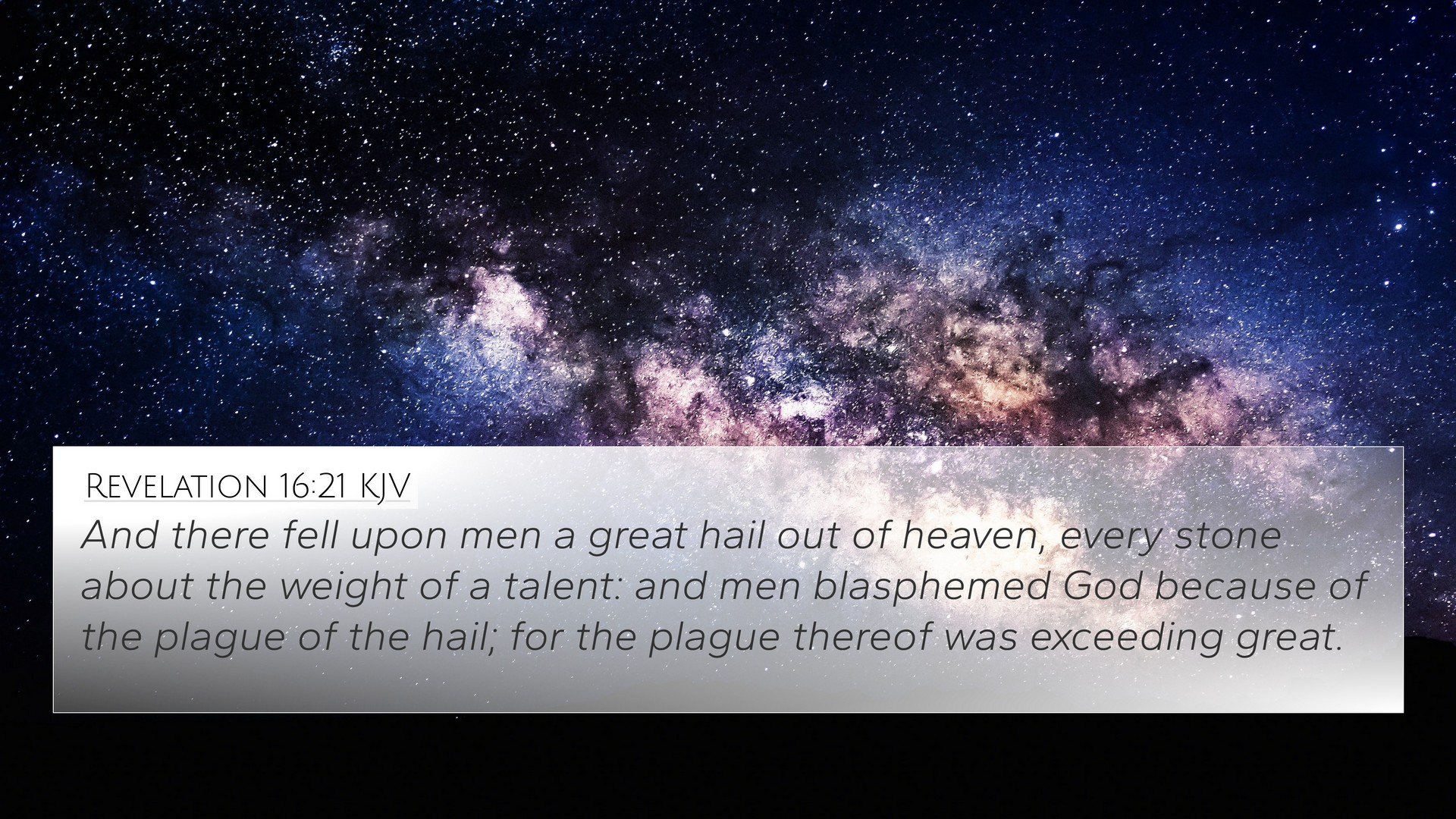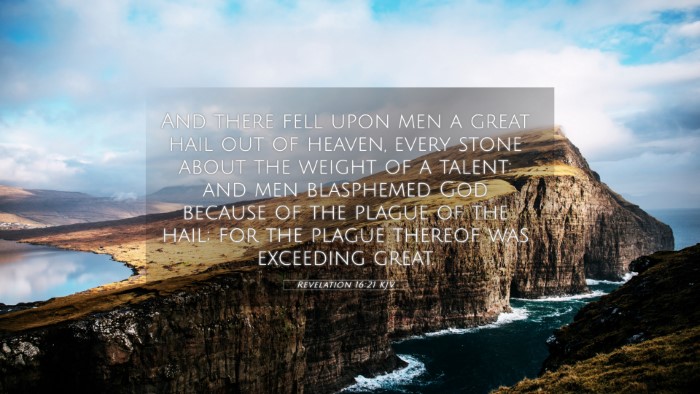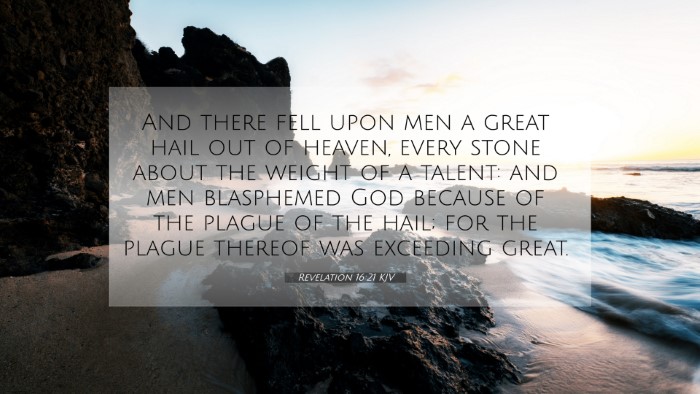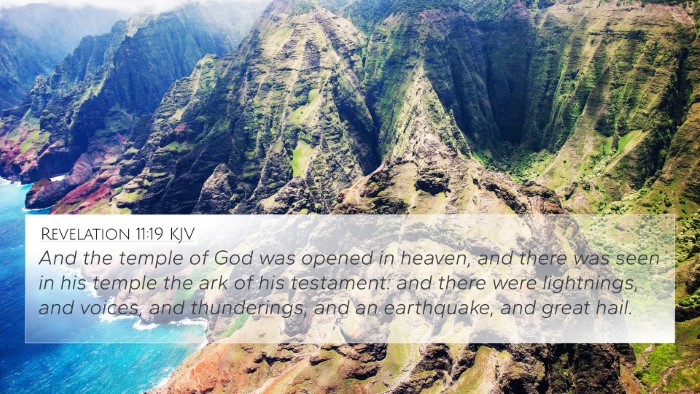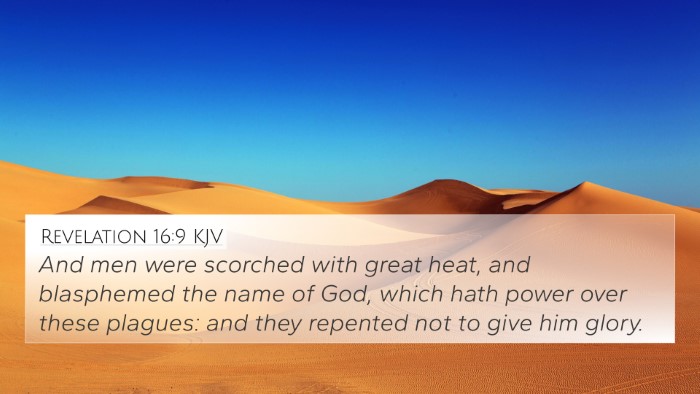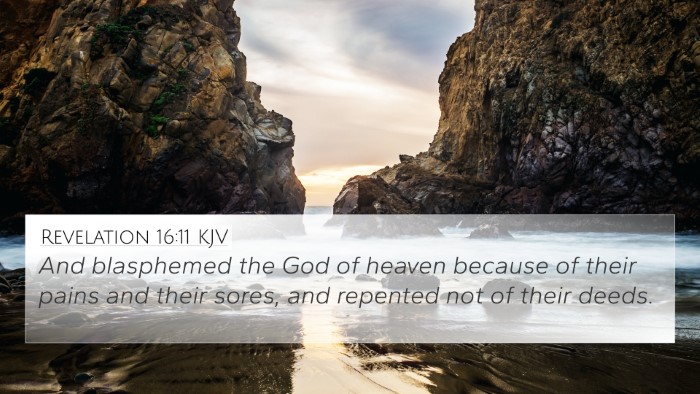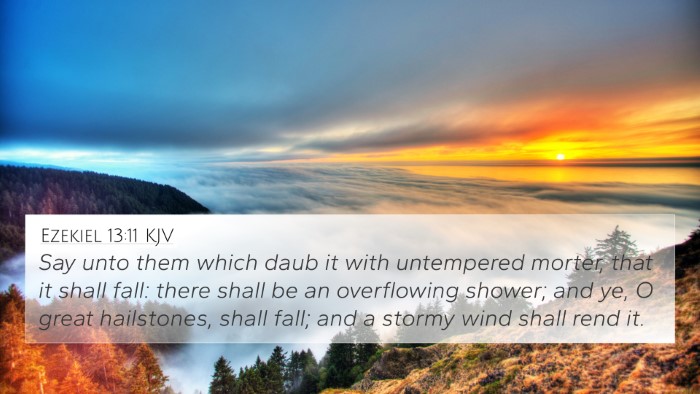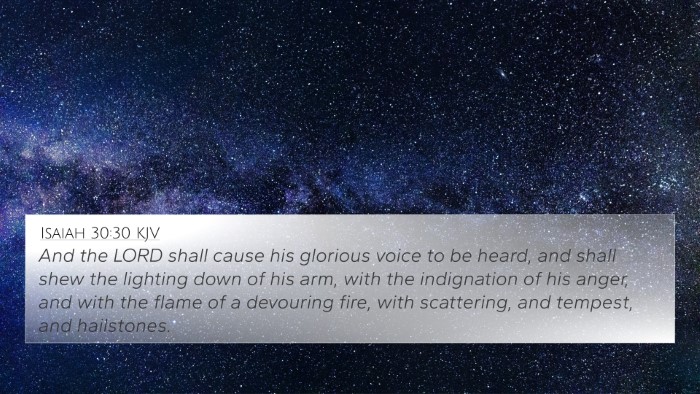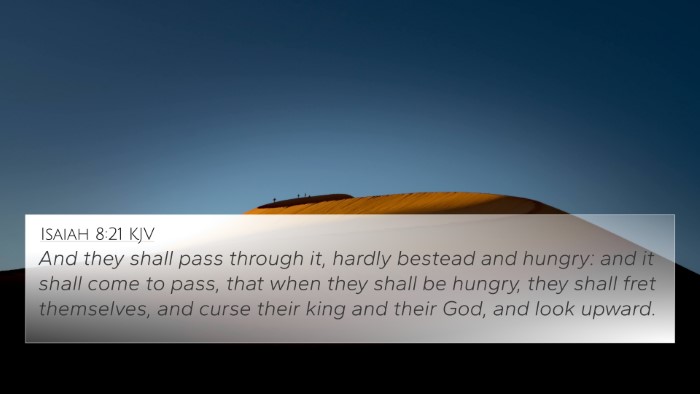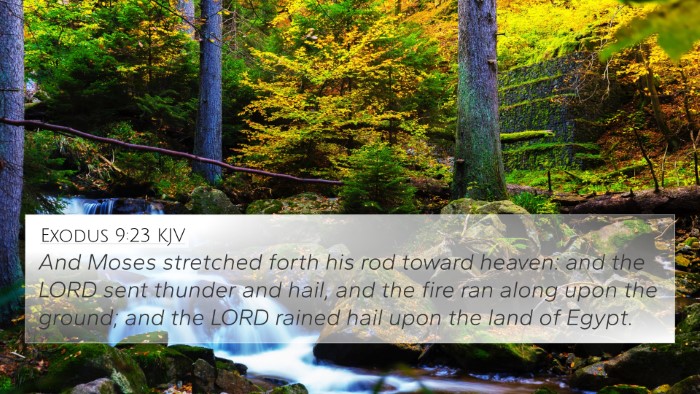Understanding Revelation 16:21
Verse: "And there fell upon men a great hail out of heaven, every stone about the weight of a talent: and men blasphemed God because of the plague of the hail; for the plague thereof was exceeding great."
Summary and Interpretation
This verse is part of the seventh bowl judgment, highlighting the finality of God's wrath upon the earth. The imagery of hailstones weighing a talent (approximately 75 pounds) signifies the magnitude and severity of God's judgment. Public domain commentaries offer insightful reflections on this passage, examining the theological implications and the connection with God's righteous anger.
Theological Insights
- Matthew Henry: He notes the symbolism behind hail as a method of divine judgment, reflecting both power and authority from God. Henry emphasizes that the unnatural weight of the hail serves to show the extraordinary nature of God’s wrath.
- Albert Barnes: Barnes interprets this calamity as a direct challenge to humanity’s rebellion against God. He discusses the blasphemy that ensues and how it reveals the hardened hearts of men in the face of overwhelming evidence of God's might.
- Adam Clarke: Clarke highlights the fact that despite the destruction, people chose to blaspheme God instead of repenting. This speaks to human nature's tendency to resist acknowledgment of divine authority even under extreme duress.
Cross-References and Connections
Revelation 16:21 has numerous connections with other scripture passages, enhancing its meaning through thematic analysis:
- Exodus 9:24-25: The plagues of Egypt with hail as judgment reflect the same themes of divine retribution.
- Psalms 18:12: Describes the Lord's power as His “pavillion” and the use of hail as His weapon.
- Ezekiel 13:13: Speaks about the judgment using weather phenomena, illustrating God's sovereignty over nature.
- Job 38:22-23: Shows God's control over the storehouses of hail and emphasizes His authority over creation.
- Isaiah 28:2: The storm metaphorically aligns with the judgment motif in Revelation, reinforcing the message of divine discipline.
- Matthew 24:21: A cross-reference to the great tribulation that will occur in the latter days, linking the end times with severe judgments.
- Romans 1:20: Illustrates humanity's accountability to God through His revealed power, echoing the disgrace seen in Revelation 16:21.
Thematic Connections
The thematic exploration of divine judgement spans across both the Old and New Testaments, providing a robust framework for interpretation. Key themes include human defiance, divine sovereignty, and the impending finality of God’s judgment. Notably:
- Throughout the Old Testament, instances of hail and meteoric phenomena serve as powerful symbols of God’s judgment (Exodus 9).
- The parallel with New Testament depictions of judgment (e.g., Matthew 24) emphasizes continuity in God's dealings with humanity.
Inter-Biblical Dialogue
This verse serves as a critical point for inter-Biblical dialogue, linking prophetic writings with apocalyptic literature, thereby enriching the reader's understanding of God's justice through history. By examining the connections between biblical texts, we gain insights into the character of God as both a loving Creator and a righteous Judge.
Tools for Further Study
To enhance your study of cross-references, consider utilizing the following tools:
- Bible Concordance: A tool for identifying connections between verses across the Scriptural canon.
- Bible Cross-Reference Guide: Provides structured pathways for exploring thematic connections.
- Comprehensive Bible Cross-Reference Materials: Great for deeper thematic exploration and understanding of the Scriptures.
- Bible Chain References: Connect dots throughout Scripture to illuminate broader biblical truths.
Conclusion
The examination of Revelation 16:21, woven with rich commentary insights and cross-references, brings clarity to God's merciful yet just nature. As believers explore these connections and reflect on the severity of God's judgment, they are called to consider their own response to such profound truths.
Studying passages like this equips Christians with a deeper understanding of the continuity in Scripture, reminding them to be vigilant, repentant, and proactive in their faith journey as they navigate the complexities of divine revelation.
